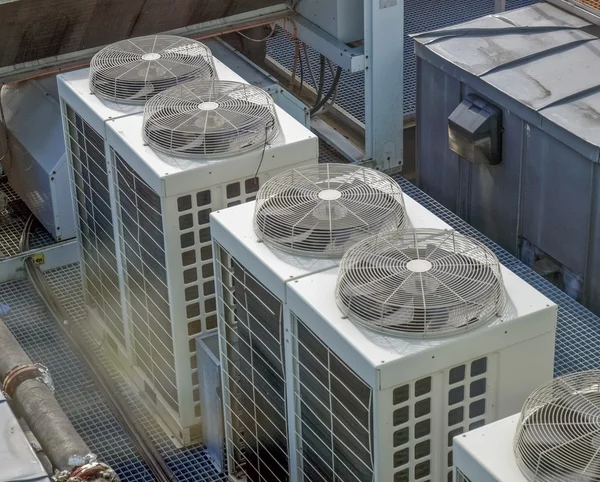Climatic Comfort: Mastering Your Home's Heating and Air Conditioning
Climatic Comfort: Mastering Your Home's Heating and Air Conditioning
Blog Article

In today's fast-paced world, maintaining a comfortable home environment is essential for both well-being and productivity. As the seasons change, the need for effective heating and air conditioning becomes increasingly important. Understanding how to master these systems not only enhances comfort but can also lead to significant energy savings and improved indoor air quality.
Whether you’re battling the chill of winter or the sweltering heat of summer, having reliable heating and air conditioning at your fingertips can make a world of difference. By learning about the latest technologies and best practices, you can ensure that your home remains a sanctuary regardless of the weather outside. Exploring the intricacies of these systems can empower you to create an ideal living space, tailored to your needs all year round.
Understanding HVAC Systems
Heating, ventilation, and air conditioning, commonly referred to as HVAC, is an essential aspect of maintaining comfort in our homes. It encompasses systems and technology designed to control the indoor climate, ensuring that our living spaces remain cozy during cold winters and pleasantly cool in the sweltering heat of summer. Understanding the components of HVAC systems helps homeowners make informed decisions about their heating and air conditioning needs.
At the heart of an HVAC system are three primary functions: heating, cooling, and ventilation. The heating aspect typically involves furnaces or heat pumps that generate warmth, circulating it through the home via ductwork or radiators. Cooling is managed through air conditioning units, which remove heat from the interior spaces, replacing it with conditioned air. Ventilation works to introduce fresh outdoor air inside, maintaining indoor air quality by reducing humidity and eliminating pollutants.
Proper maintenance of HVAC systems is crucial for ensuring efficiency and longevity. Regular inspections, filter changes, and cleaning can prevent breakdowns and improve energy consumption. Homeowners should also be aware of the latest advancements in HVAC technology, such as programmable thermostats and energy-efficient systems, which can enhance comfort while reducing utility bills. Understanding these fundamentals is the first step toward mastering your home's heating and air conditioning.
Setting Optimal Temperatures
Finding the right temperature for comfort can make a significant difference in your home environment. For heating, it's generally recommended to set your thermostat between 68 to 72 degrees Fahrenheit during the winter months. This range is comfortable for most individuals while still being energy efficient. In the summer, setting your air conditioning to around 75 to 78 degrees keeps the home cool without overworking your system, allowing for comfortable living without excessive energy bills.
Another important aspect of setting optimal temperatures is considering the time of day and usage. For example, you might lower your thermostat at night or when you are away from home. Many modern thermostats have programmable settings that allow you to adjust the temperature automatically based on your routine. This not only enhances comfort but also helps in reducing energy consumption, making your system more efficient.
Lastly, it’s essential to listen to your body and adjust as needed. Personal comfort levels can vary greatly from person to person. Utilizing fans or portable heaters can help customize comfort in specific areas of your home, allowing you to achieve a consistent temperature throughout while prioritizing both comfort and energy efficiency. Balancing these factors will help create an inviting and pleasant living space.
https://www.bostonconstruct.com
Energy Efficiency Tips
To enhance energy efficiency in your home’s heating and air conditioning systems, regular maintenance is crucial. Schedule routine check-ups for your HVAC system to ensure it operates optimally. Change filters every few months to prevent dust and debris from impeding airflow, which can force your system to work harder and consume more energy. Additionally, consider cleaning the ducts to eliminate any blockages and improve the overall efficiency of your heating and cooling systems.
Insulating your home adequately can significantly contribute to energy savings. Check for gaps around windows, doors, and in your attic, and use weather stripping or caulk to seal any leaks. Proper insulation helps maintain your home’s temperature, reducing the load on your heating and air conditioning units. You can also install thermal curtains or shades to provide additional insulation during seasonal changes, keeping your home comfortable without excessive energy use.
Finally, investing in a smart thermostat can greatly enhance your energy efficiency. These devices allow you to program heating and cooling schedules based on your daily routine, ensuring that your system only works when you need it. Many smart thermostats also provide data on energy consumption, helping you make informed decisions to optimize usage further. Embracing these technologies not only improves comfort but also leads to significant savings on energy bills.
Report this page